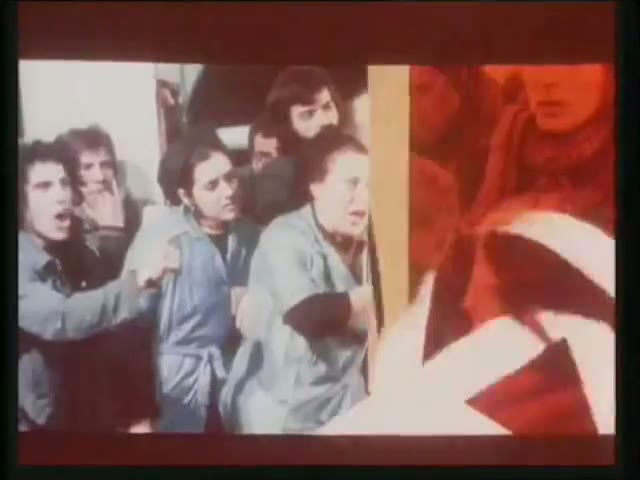Directed by:
Elio PetriCinematography:
Luigi KuveillerComposer:
Ennio MorriconeCast:
Gian Maria Volonté, Mariangela Melato, Gino Pernice, Luigi Diberti, Donato Castellaneta, Giuseppe Fortis, Corrado Solari, Flavio Bucci, Luigi Uzzo (more)Plots(1)
Gian Maria Volonté stars in one of provocative filmmaker Elio Petri‘s most politically charged films as factory worker Lulu: a man on the verge of a nervous breakdown, following an accident at work. Too tired to sleep with his girlfriend, cut out of his son’s life by his ex, humiliated and disrespected, The Working Class Go to Heaven is an oftentimes surreal and darkly comic look at the life of an everyday Italian trying to find a sense of purpose in a world where he is only allowed to be a tool for industry. A savage takedown of capitalism and industrial corruption. (Radiance Films)
(more)Reviews (1)
When you look into the abyss, the abyss also looks into you. And when you spend eight hours a day looking at a machine, the machine becomes a part of you. Petri, especially in the first half, outlines a brilliant study of the mutual interaction between the worker and 'his' machine. Lulu takes seriously the time when it is no longer enough to be just an appendage of the machine, but you also have to love it - the machine and its rhythm become a place where he lets out his frustrations, realizes his desires, and becomes the best among others. Without thinking, he was able to concentrate on the monotony of the machine and didn't notice that its rhythm had directly transferred to him. And Lulu, portrayed by Volonté, just like in Petri's previous film, is a character on the edge of madness. The necessity to adapt to the regularity of the factory world is the same as adapting to life in a mental institution, with the difference being that the insane person sees the wall separating them from the world, but the worker does not, only building it brick by brick around his assembly line and eventually within himself. What about when he tries to resist the rhythm, to not keep up? As long as you give everything to the machine, it also gives you something in return, but when you only give it a little of yourself, it takes everything from you. The worker has a finger to sacrifice at any time, while the “padrone” has a finger to show you where your place is.
()

